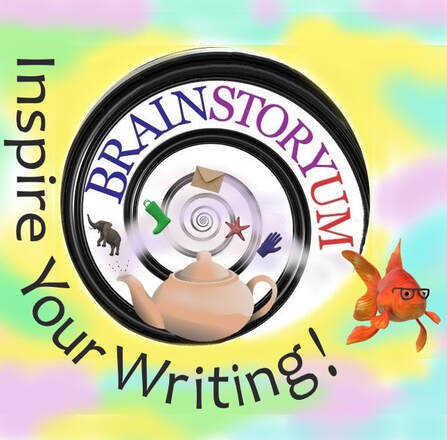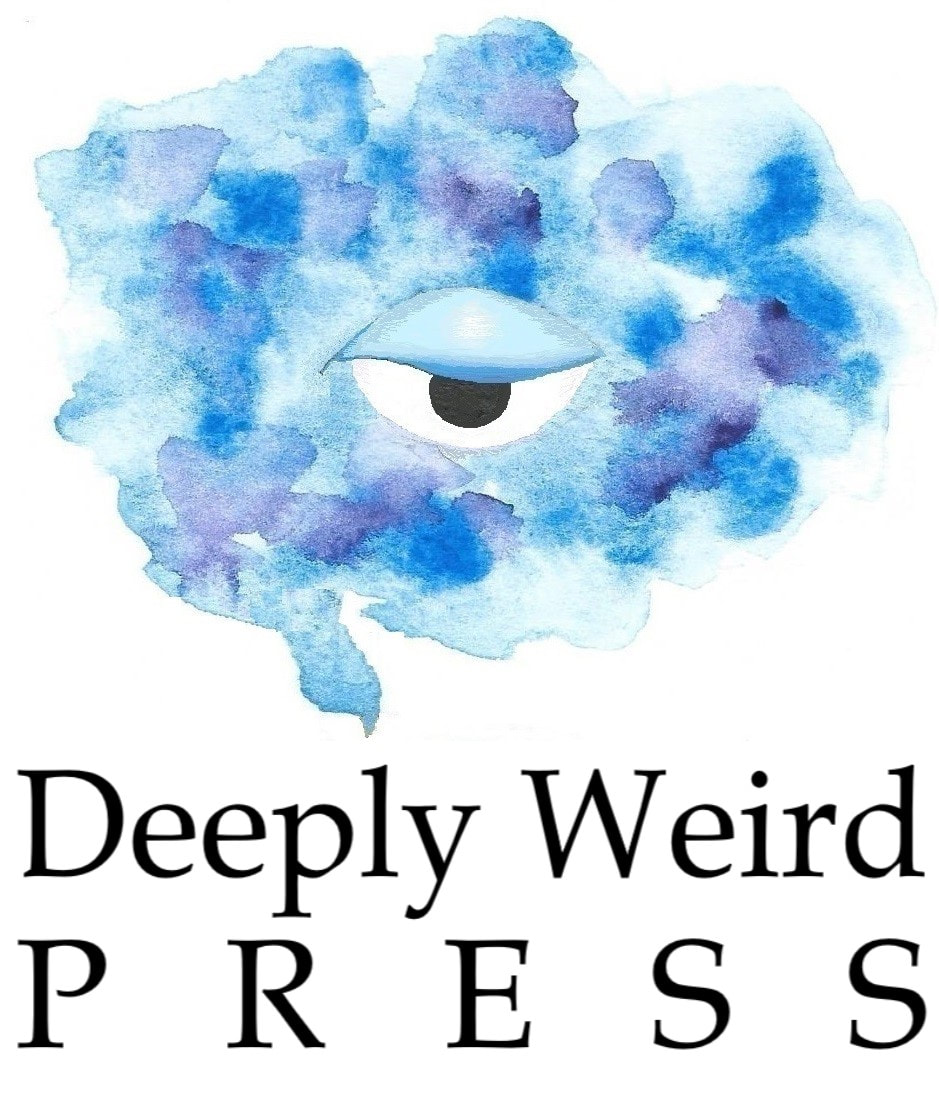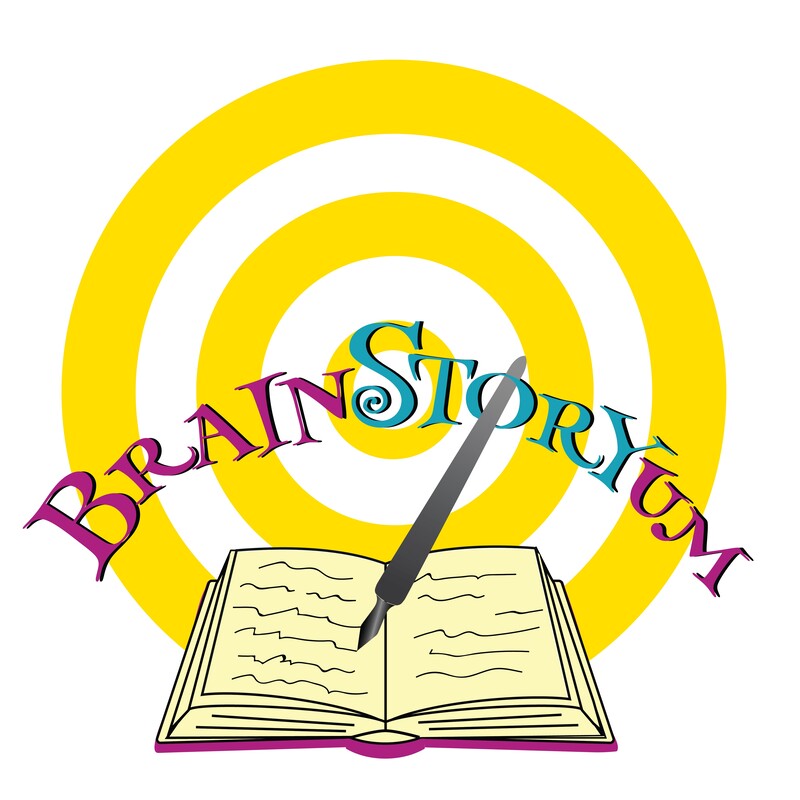#01 The Path of Randomness: Inspire Your Creative Writing with a Little Help from the Surrealists!29/10/2022 An early introduction to the game of Exquisite Corpse. Learn about its surrealist origins and how it can inspire us today. Then: playing the game! Note for writers: You can pause the podcast after the game results are put together, if you want to use this as a writing prompt/ creative brainstorming exercise. Or just listen and enjoy!
SHOW TRANSCRIPTION (does not include Exquisite Corpse game play at the end): Inspiration. The flow of ideas. That spark of wonder as an idea starts to form. As an author, I’m just like other authors – and artists, and creatives from all walks of life – in that we’re all looking for inspiration, wondering where our next idea is going to come from, but it’s a process we’re not really in control of. We all need inspiration to create. But what is it, and where does it come from? As an author of dreampunk and contemporary fantasy, often exploring ideas about the unconscious mind through my stories – I’m probably a little bit obsessed with these questions, because I just love psychology, and being creative with psychology. I feel like, because you can’t absolutely and definitely pin these things down – because the mind itself is an abstract concept – it’s not just the brain, we’re talking about thoughts and ideas and feelings – the stuff that stories are made of, am I right? That just thinking about these things can give us a way in to a kind of creative thinking. That’s really what this podcast is all about. In the early 1900s, Europe was facing some new and terrifying events. There was the first world war, the Russian Revolution, and technological advances of the Machine Age – all of these things created a feeling of normal life being fractured, and at the mercy of sudden, violent, and disturbing changes. A sense of impending doom, perhaps. There was so much that was new, and scary and that people weren’t in control of. On top of this, Freud had just emerged with his ideas about the unconscious mind and the influences of dreams and so on, and with the translation of his works into various languages, his ideas were fast on the move. More than anything, perhaps, the art movement of surrealism celebrates irrationalism – the notion of these forces at work beneath the surface of civilisation. The idea of these irrational forces rising up, and the unseen power of the unconscious mind – while some people were trying to avoid all of this, and found Freud’s ideas quite shocking, talking about dreams and the power of the unconscious, and the war, it was changing people’s thinking about who they were and how life itself… worked. One of the main aims of surrealism was to try to get at the contents of the unconscious mind and give it direct expression, or as direct as possible. Methods included automatic writing where writers went into a trance and wrote whatever came into their heads (not to be confused with spiritualism where people were trying to contact spirits of the dead). First of all, this is very hard to do, because how do you bypass the workings of your conscious mind, which is probably the part of your thinking that understands how a sentence works, right? How do you stop your critical mind stepping in and working out a way to write a sentence that makes better sense than the one you’re “automatically” writing? And how can you even know if you’ve achieved this letting go of the critical mind? At first glance, this sounds to me like a really extreme version of what we do to some small extent when we first notice a new idea when it pops into our heads. When we first start jotting ideas down, on the one hand you have this fear that you’re going to forget it before you can get it down, but on the other, you have the feeling that something different, something outside the normal logic of normal, everyday thinking has broken through, and you’re trying to clutch this thread, of something ethereal. You’re listening for something mysterious, and your state of mind feels different from the usual awareness that you have, if you’re listening to a friend talking or when you’re watching TV or working. Your awareness feels sort of sharper and more alert in some ways, but there’s also a softening, where you’re not trying to clutch at it too hard. You’re trying to set aside normal logic, and critical thinking so you can follow this little playful labyrinth that’s just appeared in your mind, and see where it goes. Follow the will' o the wisps. The surrealists had taken this to a whole new level, really extreme. I mean, as much as I want to come up with new ideas I wouldn’t expect to put myself into a trance – and I’m not suggesting that anyone tries that! But it shows me that the surrealists were on to this kind of thinking on a grand, bizarre scale, so yes, I definitely think there are things we can learn about inspiration, by looking at what they did and trying to understand their funny, funny ways. Now, as another example, some of the most famous images that probably pop into your mind when you think of surrealism are the paintings that depict scenes from the artists’ dreams. So again, they were trying to express what was in the unconscious mind. But I think with this, the surrealists had an even bigger problem than they did with automatic writing – or a bigger version of the same problem, because to create a faithful rendition of your dream, you’re actually being really conscious about it, you really have to think and remember what you dreamed, and use your skill as a painter – and it takes much longer to paint a picture than it does to jot down a paragraph, maybe, that might or might not be from your unconscious mind. For this reason, those dream paintings were criticised at the time, even by the founders of surrealism, such as Andre Breton. So how else could the Surrealists get to these irrational forces that might give them some insight into what lies beneath? Enter: randomness, and the element of chance. One of the things that really characterised surrealist art and literature was the collision of images or ideas that didn’t fit together naturally, but when they were put side by side, they seemed to suggest whole new meaning, a kind of resonance of another truth, even if the effect on the audience was just to jolt us, shock us, out of our ordinary ways of thinking. Some artists used the element of chance by dropping pieces or paper or threads onto their canvasses or whatever they were making, and then using where those things fell to direct what they did next, where they painted different parts of the picture. There was an anarchic sense of some other power being at work here, perhaps just the power of nature, or an irrational set of physical laws; the idea was to just let things happen, without the interference of critical human thought, and conscious striving. Again, a bit like an extreme version of what we might do when we’re listening for a new creative idea. And along came Exquisite Corpse, the ultimate game of randomness. It was originally based on the parlour game of consequences, where each player writes part of a story, folds their piece of paper to hide what they’ve written and passes it on for the next person to write the next part – and so you end up with this weird story made up of random parts. In 1925, the surrealists boiled this down to a single sentence. To ensure it made grammatical sense, they chose this structure: The described noun did something to/with/for the described noun. The first game result (we’re led to believe) was (translated from the French), “The exquisite corpse shall drink the new wine” – and that’s where the game gets its name. The art version which seems to be so much more famous, and comes up loads more on an internet search, is where different players draw or paint different sections of a body to make a very strange creature, came soon afterwards, and that’s become more popular, and is generally better known. So let me just give you a couple of examples before we play the game: Now, if you’re subscribed to my deeply weird newsletter or have read almost anything I’ve written lately, you’ll know about my series, The Book of Exquisite Corpse, where each standalone story or novel is based on the results of a game. “The Empty Danger” which is book 1, was a weird word combination that cropped up in one of the first games I ever played. And this is the beauty of the game, in that you don’t have to use the whole sentence – quite often you can’t, it’s just too bizarre – and it’s very hit and miss as you’re about to find out – but sometimes the adjective-noun combinations can be enough on their own to spark a story. So having asked myself the question, “What on earth is an empty danger?” I wrote a novel about fear at the beginning of the first lockdown in 2020 – about lockdown in 2020, but with a whole fantastical interpretation of what fear is and how to deal with it - because what else could be empty and dangerous at the same time? Book 2 in my series, “I” For Immortality, was based on a whole Exquisite Corpse result, which was “the lofty portrait of my grandmother rapidly salivated at the estranged stairwell.” What I got from this was the idea of a reclusive artist called Flo, living with her grandmother, also an obsessive artist – and whose portrait seems to come alive. It’s was this idea of a drooling portrait. It almost became horror – but I can’t and don’t do horror. I don’t want to follow through with that feeling of dread that you get in horror. So it get close, but then it takes a sharp left turn into something even weirder than you start out with. Anyway, playing Exquisite Corpse in person, it is absolutely hilarious. The answers are ridiculous and that can be pretty funny. But once you start to really look at the sentences and try and make sense of them, or use them to come up with a story idea, they’re often quite creepy because of these strange combinations. So – now I think it’s time to give it a go. Let us follow the path of randomness to new heights of inspiration! In order to play I’ve collected words and phrases submitted by lovely people on the internet using my Play Exquisite Corpse page at annatizard.com, they’re all on little slips of paper, folded up and they’ve been sorted in to the three SOCKS OF DESTINY. (ORGAN SOUND) That’s right. I have 3 socks – clean! This is a clean show. Totally mismatched, obviously. We’ve got to be surrealist about this. So my describing word sock is (polka dots), my noun sock is ___ and the one for the action part of the sentence is ___. So in each of these I’ve put the little slips of paper in them with those types of words and phrases in them. And now all I have to do is pull out some entries in the right order and see what weird combinations come up! Now if you’d like to turn this into an imagination-exercise for yourself, then grab a piece of paper and pen or pencil, and once I’ve drawn the words for the first sentence – I mean, I might try more than one, I don’t know! This is the first episode, anything could happen! But you could pause this podcast and take 5 minutes, or however long you’d like, and do your own brainstorm. Then you can press play when you’re done and find out how well or badly I’ve done. Or just listen, either way. OK, word one, sock one. Here goes… Exquisite Corpse game play is not transposable... Please listen the last section of the show to enter a realm of deep silliness and inspiration!
0 Comments
Your comment will be posted after it is approved.
Leave a Reply. |
|
What readers are sayingReview of The Empty Danger: 5.0 out of 5 stars |
Contact |


